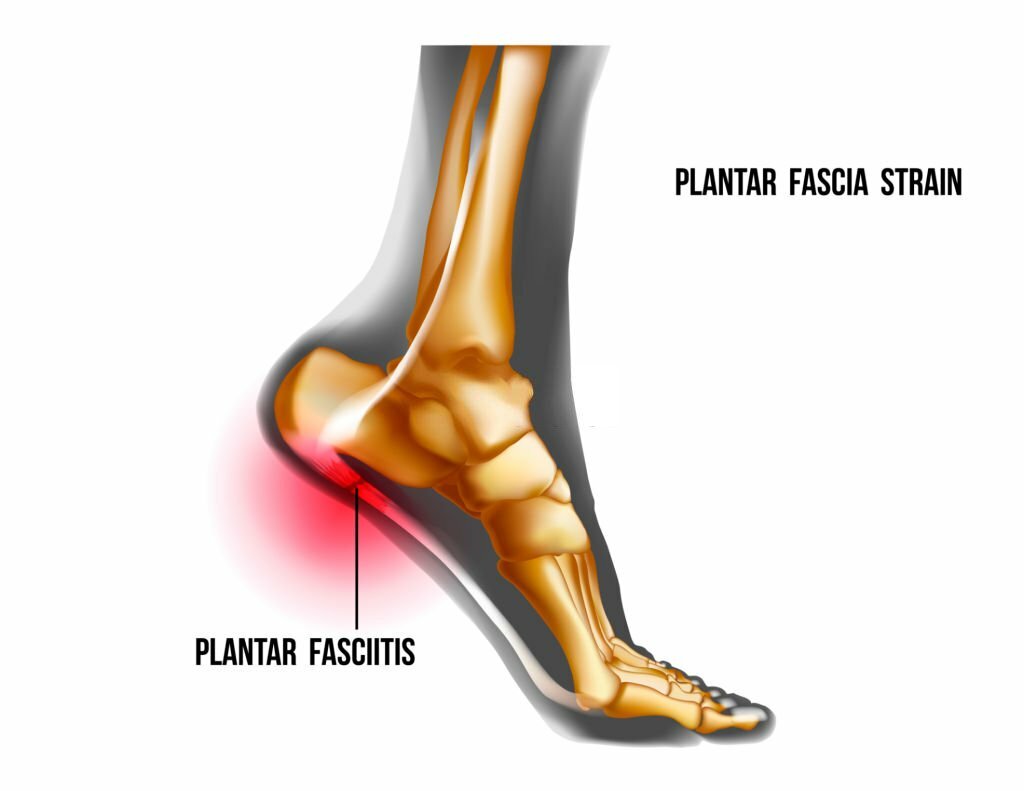Plantar fasciitis, a common ailment causing heel pain, can be a significant hurdle in our daily lives. The good news is that with the right approach, it’s possible to find relief and make substantial progress in just one week. In this article, we’ll explore strategies and remedies that can help alleviate the discomfort associated with plantar fasciitis, allowing you to stride with confidence sooner than you might think.

Understanding Plantar Fasciitis
Before delving into the one-week recovery plan, it’s crucial to understand what plantar fasciitis is and how it occurs.
What is Plantar Fasciitis?
Plantar fasciitis is the inflammation of the plantar fascia, a thick band of tissue that connects the heel bone to the toes, forming the arch of the foot. The plantar fascia plays a crucial role in supporting the foot’s arch and absorbing shock during movement.
Causes of Plantar Fasciitis:
- Overuse: Excessive running, standing, or walking can strain the plantar fascia, leading to inflammation.
- Improper Footwear: Wearing shoes with inadequate support or an improper fit can contribute to the development of plantar fasciitis.
- Biomechanical Issues: Abnormal foot mechanics, such as high arches or flat feet, can increase the risk of plantar fasciitis.
- Tight Achilles Tendon: Limited flexibility in the Achilles tendon can put extra stress on the plantar fascia.
Now that we have a basic understanding of plantar fasciitis, let’s explore a comprehensive one-week plan to alleviate its symptoms.
Day 1-2: Immediate Relief Measures
Rest and Ice:
- Rest: Minimize weight-bearing activities to allow the plantar fascia to heal. Avoid prolonged periods of standing or walking.
- Ice: Apply an ice pack to the affected heel for 15-20 minutes every 2-3 hours. Icing helps reduce inflammation and soothe pain.
Stretching Exercises:
- Towel Stretch: Sit on the floor with your legs stretched out. Loop a towel around the ball of your foot and gently pull it towards you, keeping your knee straight. Hold for 15-30 seconds.
- Calf Stretch: Stand facing a wall with your hands on it. Step one foot back, keeping it straight, and bend the front knee. Hold for 15-30 seconds. Switch legs and repeat.
Day 3-4: Footwear Evaluation and Modification
Assess Your Footwear:
- Supportive Shoes: Ensure you’re wearing shoes with proper arch support. Consider adding orthotic insoles for additional support.
- Heel Cup Inserts: Insert heel cup inserts or cushions to provide extra support to the heel.
Rolling Exercises:
- Frozen Water Bottle Roll: Roll the affected foot over a frozen water bottle for 5-10 minutes. This helps reduce inflammation and massages the plantar fascia.
- Tennis Ball Massage: Roll a tennis ball under your foot, applying gentle pressure. Focus on areas of discomfort for relief.
Day 5-6: Strengthening and Stabilization
Strengthening Exercises:
- Marble Pick-Up: Place marbles on the floor and use your toes to pick them up and place them in a bowl. This exercise strengthens the muscles in your feet.
- Toe Tapping: While seated, lift your toes off the ground, keeping your heels planted. Tap your toes on the floor for 30 seconds, then rest. Repeat.
Stability Exercises:
- Single-Leg Stance: Stand on one leg for 30 seconds, then switch. This improves balance and stability.
- Calf Raises: Rise onto your toes, hold for a moment, then lower. Perform 3 sets of 15 repetitions.
Day 7: Continued Care and Consultation
Continued Care:
- Continue Stretching: Maintain the stretching routine to prevent recurrence.
- Gradual Return to Activity: Gradually reintroduce activities, ensuring you don’t overstress the foot.
Professional Consultation:
- Seek a Specialist: If symptoms persist, consult a healthcare professional or a podiatrist for a comprehensive assessment.
- Consider Physical Therapy: Physical therapy can provide tailored exercises and techniques for long-term recovery.
In one week, diligent adherence to this plan can significantly alleviate the discomfort associated with plantar fasciitis. However, individual responses may vary, and it’s essential to listen to your body. If symptoms persist or worsen, seeking professional advice ensures a thorough evaluation and personalized care for a swift and sustainable recovery. Remember, the journey to overcoming plantar fasciitis is a step-by-step process, and with commitment, relief is within reach.